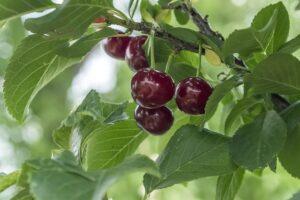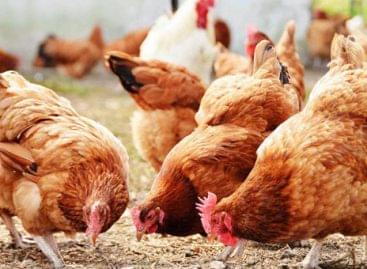This year’s sour cherry harvest is much smaller than usual
The weather was not favorable to the sour cherry harvest this year either, spring frost damage was significant in the plantations, and producers were only able to harvest significant quantities from mid- or late-ripening varieties. According to the overview of the National Chamber of Agriculture (NAK) and the Hungarian Fruit and Vegetable Association (FruitVeB), despite the low harvest, there was significant demand for Hungarian sour cherries on the international market, which also pushed prices up extremely.

(Photo: Pixabay)
The spring frost caused significant damage to the domestic sour cherry harvest, this year’s harvested quantity is far below the 60-70 thousand tons that can be produced in good years, but the harvest was much weaker than last year’s harvest, which was also very low. Although the exact volume of the harvested sour cherry crop is not yet known, the Hungarian Fruit and Vegetable Association (FruitVeB) estimates that the harvest will be closer to 30,000 tons than to 40,000 tons.
The largest losses were recorded in early varieties, with significant volumes coming from ‘cluster sour cherries’, which also shortened the domestic processing season
However, the spring frosts not only decimated the domestic sour cherry crop, but also caused drastic crop losses in the major European sour cherry producing countries. This led to a strong over-demand for the fruit on both the domestic and international sour cherry markets. Demand was further increased by the fact that stocks of processed sour cherry products (cherry preserves, frozen sour cherries, sour cherry concentrate) were low both at home and abroad, partly due to the weak Hungarian and Polish harvests last year. Since the sour cherry harvest was also weak in other European countries, in addition to Poland and Germany, which are our main export markets, there has been a greater interest in Hungarian sour cherries from other markets. In the case of preserved sour cherries, Hungary is the dominant European producer, while in the case of frozen sour cherries and sour cherry concentrate, Poland, Serbia and Turkey are the main producers. A significant part of domestic sour cherries goes to export markets: 25% of exports are fresh (raw) sour cherries as raw materials, 70% are preserved, and 5% are frozen.
Sour cherries are a real superfruit, and their consumption is primarily recommended fresh, as this is how their beneficial physiological effects are best utilized
Sour cherries are a fruit extremely rich in vitamins and minerals, and in addition to their significant vitamin C content, they are also an excellent source of iron, calcium and magnesium. Their high potassium content helps regulate heart function, normalize blood sugar levels and blood pressure, and has a strong blood-purifying and anti-inflammatory effect. It stimulates the nerves, aids digestion, and is well known for its diuretic effect.
NAK
Related news
Not a turnaround, but consolidation: an agricultural outlook for 2026
🎧 Hallgasd a cikket: Lejátszás Szünet Folytatás Leállítás Nyelv: Auto…
Read more >The EP accepted the safeguard clauses concerning the Mercosur agreement
🎧 Hallgasd a cikket: Lejátszás Szünet Folytatás Leállítás Nyelv: Auto…
Read more >Poultry meat imports fell in 2025
🎧 Hallgasd a cikket: Lejátszás Szünet Folytatás Leállítás Nyelv: Auto…
Read more >Related news
Tesco sets out store expansion plans in 2026 including five former Amazon Fresh sites
🎧 Hallgasd a cikket: Lejátszás Szünet Folytatás Leállítás Nyelv: Auto…
Read more >







